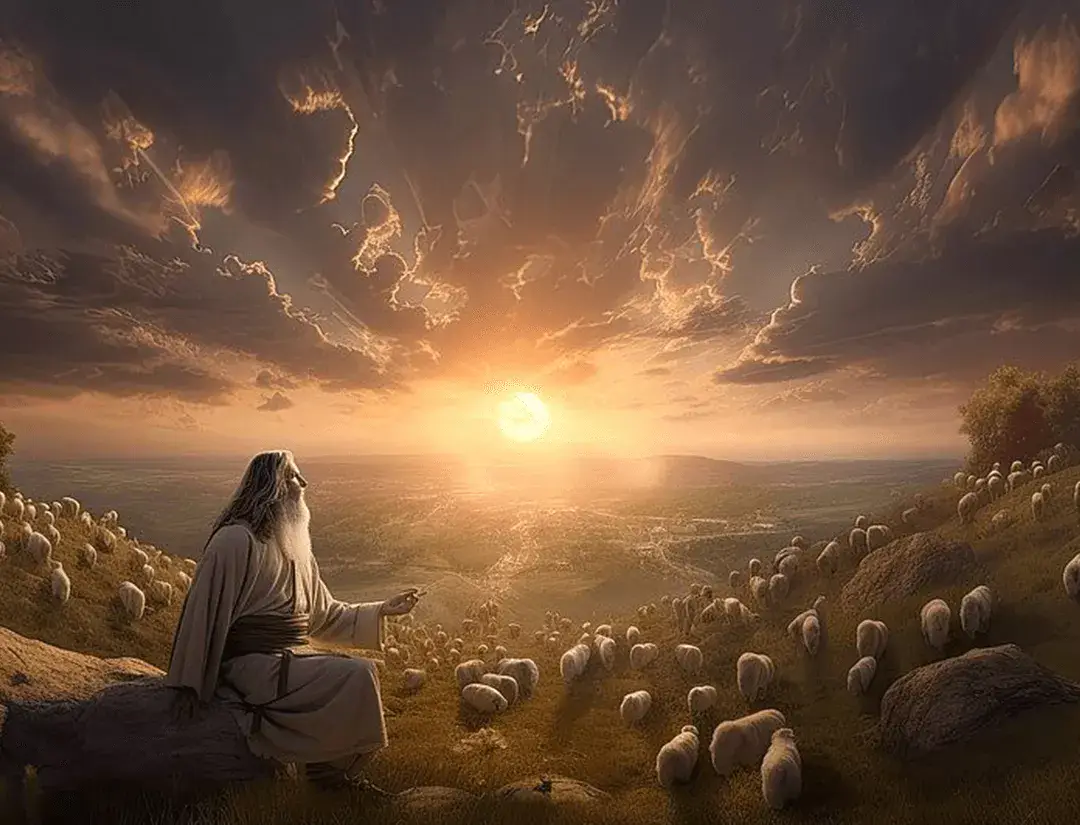Language
 Directory
Directory
Exodus
Aaron

1. Aaron was a central figure in the biblical history of ancient Israel. He is known as the older brother of Moses and played a significant role as the first high priest of Israel. Aaron's story is one of divine appointment, faith, and leadership, and it carries great significance in the religious and cultural tradition of the Jewish people.
2. Aaron was born into the tribe of Levi during the time when the Israelites were enslaved in Egypt. When God called Moses to lead the Israelites out of bondage, Moses felt inadequate and requested that Aaron, his brother, serve as his spokesperson before Pharaoh.
3. Together, Moses and Aaron confronted Pharaoh, demanding the release of the Israelites. They performed miraculous signs and plagues, showcasing God's power, to persuade Pharaoh to let the Israelites go. Eventually, after enduring ten plagues, Pharaoh finally relented, and the Israelites were liberated from slavery.
4. After their escape from Egypt, Aaron was appointed by God to be the high priest, while his descendants would hold the priesthood for generations to come. As the high priest, Aaron played a crucial role in the religious rituals and governance of the Israelites.
5. When Moses went up Mount Sinai to receive the Ten Commandments, the Israelites grew impatient and demanded that Aaron create a god they could worship. Aaron succumbed to the pressure and crafted a golden calf from their jewelry. This act angered God and resulted in severe consequences for the Israelites.
6. Aaron later repented for his involvement in the golden calf incident and remained faithfully committed to serving as the high priest. He was responsible for overseeing the tabernacle, the portable sanctuary where the Israelites worshipped God during their wanderings in the wilderness.
7. Aaron's most significant role as the high priest was performing the sacred rituals on behalf of the people. He offered sacrifices, interceded for the nation, and entered the Holy of Holies once a year on the Day of Atonement to make atonement for the sins of the people. Through these rituals, Aaron demonstrated the necessary reverence for God and the importance of seeking His forgiveness and reconciliation.
8. Aaron's faith and obedience were tested when his two sons, Nadab and Abihu, offered unauthorized fire before the Lord and were struck dead as a result. Despite this tragedy, Aaron remained steadfast in his duties as the high priest and continued to faithfully serve God.
9. Aaron's significance lies in his pivotal role as the mediator between God and the Israelites. He represented the people before God and was responsible for upholding the religious practices and maintaining the sanctity of the priesthood. Aaron's appointment as the high priest established a priestly lineage that would endure throughout Israel's existence as a nation.
10. Furthermore, Aaron's story serves as a reminder of God's sovereignty in choosing and appointing individuals for specific roles. Despite his initial doubts and insecurities, Aaron became an instrumental figure in leading the Israelites out of Egypt and establishing the religious practices that would shape their worship of God.
11. Aaron was the older brother of Moses and the first high priest of Israel. His story highlights his divine appointment, faith, and leadership in fulfilling his duties as the high priest. Aaron's significance lies in his role as the mediator between God and the Israelites, exemplifying the importance of seeking forgiveness and reconciliation with God. His story demonstrates God's sovereignty in selecting individuals for specific tasks, and his lineage as high priests remained an integral part of Israel's religious tradition.




 Previous
Previous







